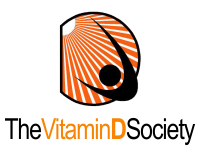Vitamin D helps you live longer!
Oct 25, 2022

World Vitamin D Day - November 2nd
NEWS RELEASE
For Immediate Distribution
TORONTO, ON (October 25, 2022) – Your personal health and that of your family are the most important things in life. Optimal vitamin D levels play a significant role in helping prevent a wide number of diseases and strengthening your immune system to assist with new threats. Vitamin D and sun exposure have been found to reduce mortality and help you live a longer life.
Since 2009, we have celebrated World Vitamin D Day on November 2nd to highlight the health benefits of vitamin D and the importance of having optimal vitamin D levels of between 100-150 nmol/L (Canada) or 40-60 ng/ml (USA). November is the month that Canadians vitamin D levels rapidly decline due to reduced sun exposure. Over 93% of Canadians do not meet this vitamin D level.
Please help STOP Vitamin D Deficiency!
Take action to make sure you are not vitamin D deficient:
- Adults need a daily vitamin D intake of 4,000 IU/day (100 mcg) from all sources, according to levels recommended by vitamin D experts.
- Get out in the natural sunlight when the UV Index is above 3 and your shadow is shorter than you. Remember to never sunburn.
- Consider artificial UVB exposure when natural sunlight is weak or not available and your skin type can receive UV exposure without burning.
- Increase your food intake of fatty fish such as salmon.
- Take a vitamin D3 supplement to make up the balance when sun exposure is not available or a viable option. UVB from sunlight or a sunlamp is what makes vitamin D naturally in your skin.
- Test and make sure your 25(OH)D blood level is between 100-150 nmol/L (Canada) or 40-60 ng/ml (USA).
Dr. Reinhold Vieth, University of Toronto, in his latest vitamin D research paper reported: “There are consistent epidemiological data that mortality is highest among those people classified into the lowest group for serum 25(OH)D or for sun exposure”. Dr. Vieth recommends a “combined vitamin D3 supply of 4,000 IU/day (100 mcg/d) via UVB exposure, diet, and/or supplement.” (Vieth 2022)
A large cohort study in Sweden has been following 30,000 women since 1990 looking at their health, sun exposure and mortality. The study found that there was a 40% higher risk of cancer related death in the group with low sun exposure as compared to those with the greatest sun exposure. They attributed this to the production of vitamin D or other beneficial health benefits from sun exposure. They added that low sun exposure doubled your risk of dying and that women age 55 and older with low sun exposure had 1 month shorter life expectancy, per year. (Lindqvist 2022)
The first place to start is to have your vitamin D or 25(OH)D blood level tested. It’s the only way you are going to know if you or anyone in your family is vitamin D deficient. Don’t guess. Get tested. You can have this 25(OH)D blood test completed through your doctor or healthcare provider (there may be a fee) or through an organization offering a home-based test like this one at GrassrootsHealth.
Make sure you get your test score and compare it with the Scientists Call to D*action recommendation of between 100-150 nmol/L (Canada) or 40-60 ng/ml (USA). The scientists recommend that everyone, all ages achieve this level for optimal health. If you are lower than this level you can increase your vitamin D intake by following this vitamin D calculator.
“Your health is your most important asset. Please follow the simple actions above to ensure you are not vitamin D deficient,” says Perry Holman, Executive Director of the Vitamin D Society.
For more information on World Vitamin D Day on November 2nd, please visit our website and help take action to STOP vitamin D deficiency. Please consider sharing one of our graphics from the Tools section on your social media on November 2nd. Please remember to include the hashtag #WorldVitaminDDay in your posts. Thank you!
About the Vitamin D Society:
The Vitamin D Society is a Canadian non-profit group organized to increase awareness of the many health conditions strongly linked to vitamin D deficiency; encourage people to be proactive in protecting their health and have their vitamin D levels tested annually; and help fund valuable vitamin D research. The Vitamin D Society recommends people achieve and maintain optimal 25(OH)D blood levels between 100 – 150 nmol/L (Can) or 40-60 ng/ml (USA).
To learn more about vitamin D, please visit www.vitamindsociety.org
-30-
For more information, please contact:
Perry Holman, Vitamin D Society, 877-520-4867 pholman@vitamindsociety.org
References:
Reinhold Vieth. Critique of Public Health Guidance for Vitamin D and Sun Exposure in the Context of Cancer and COVID-19. ANTICANCER RESEARCH 42: 5027-5034 (2022) doi:10.21873/anticanres.16011
Pelle G Lindqvist, Elisabeth Epstein, and Mona Landin-Ollson. Sun Exposure – Hazards and Benefits. ANTICANCER RESEARCH 42: 1671-1677 (2022) doi:10.21873/anticanres.15644







